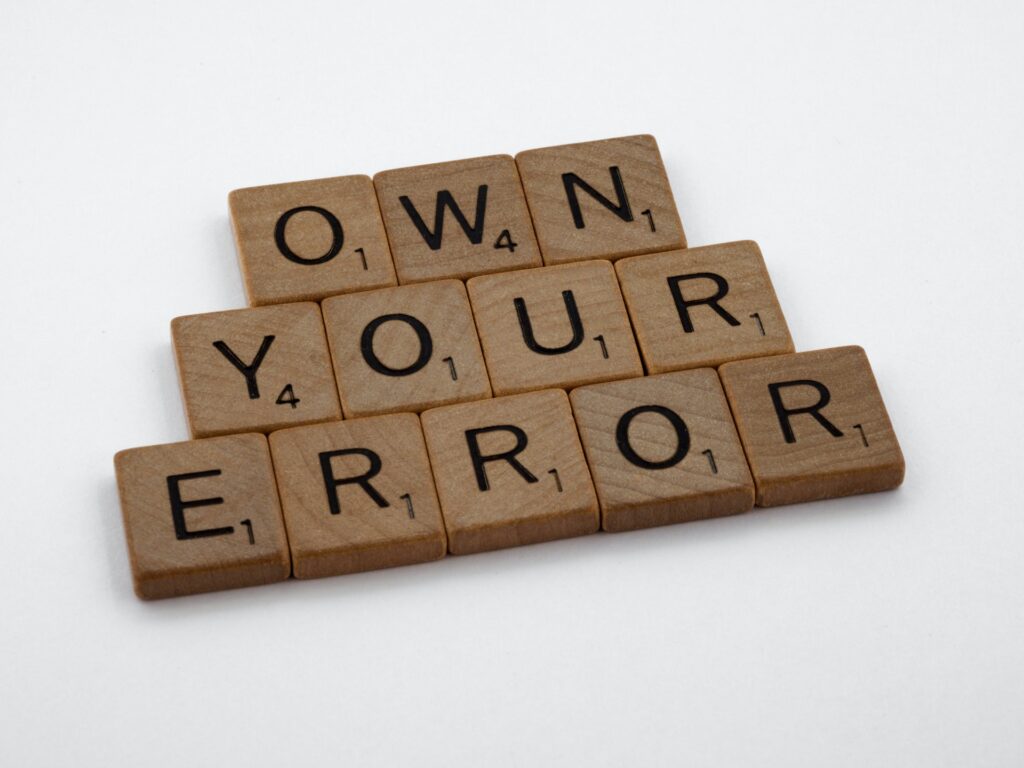You’re sitting in front of your computer, a steaming morning beverage in hand, ready to conquer the freelance writing world. But wait!
Before you dive into the abyss of words and deadlines, it’s crucial to familiarize yourself with the potential landmines that could sabotage your career. Yes, we’re talking about common freelance writing mistakes – silent killers that can bring down even the most promising writing careers.
Whether you’re a seasoned freelancer or a newbie trying to get your foot in the door, avoiding these pitfalls is non-negotiable. They not only affect the quality of your work but also your reputation and chances of success. This article will shed light on the top 10 freelance writing mistakes and arm you with strategies to sidestep them.
So, let’s roll up our sleeves and start moving towards a more successful, mistake-free freelance writing career. Because remember, knowledge is power, and in this case, it’s the power to build a thriving freelance writing career.
Why Avoiding Freelance Writing Mistakes Matters
Let’s face it, no one is perfect. We all make mistakes. However, in the world of freelance writing, some mistakes can have far-reaching consequences. They can impact not only your work quality but also your reputation and, ultimately, your success.
Imagine delivering a piece riddled with typos and grammatical errors. It not only frustrates your client but also reflects poorly on your professionalism. Over time, such mistakes can erode trust, making it difficult for you to secure future projects.
Or consider consistently missing deadlines because you’ve overcommitted. It sends a message that you’re unreliable, and in an industry where reliability is as valued as writing skills, this can be a career killer.
Now, let’s flip the coin. When you consciously avoid these common freelance writing mistakes, you can drastically improve the quality of your work. Your pieces become more polished, compelling, and tailored to the needs of your clients.
Moreover, when you’re punctual, communicate effectively, and deliver high-quality work consistently, you build a solid reputation. Clients are more likely to recommend you to others, leading to more opportunities and success.
In essence, dodging these freelance writing mistakes is about more than just producing better work. It’s about fostering stronger relationships with your clients, enhancing your professional image, and paving the way for a thriving freelance writing career. So, it’s worth taking the time to understand these mistakes and learn how to avoid them.
Remember, each mistake avoided is a step towards success. So, let’s dig deeper and explore some of the most common mistakes that writers and content creators make.
Top 10 Freelance Writing Mistakes
1. Pitfall of Not Proofreading Your Work

One of the most common yet avoidable freelance writing mistakes is not proofreading your work. You may have crafted a piece with the most compelling arguments and engaging narrative, but if it’s full of typos, grammatical errors, or awkward sentences, it loses its impact.
Proofreading is like polishing a diamond. It’s the final step that removes any lingering imperfections and enhances the brilliance of your work. By skipping this step, you risk delivering a piece that appears unprofessional and careless. This can disappoint your clients and tarnish your reputation:
- Take a break: After finishing your draft, take some time away from your work before you start proofreading. This helps you approach the text with fresh eyes and spot errors you might have missed initially.
- Read aloud: Reading your work aloud can help you catch awkward sentences, repeated words, or grammatical errors. It can also help you assess the flow and rhythm of your writing.
- Use technology: Tools like Grammarly or Hemingway Editor can spot errors and suggest improvements in grammar, punctuation, and style. However, don’t rely solely on them. Always do a manual check as well.
- Check one type of error at a time: If you try to find all errors at once, you might miss some. Instead, focus on one type of mistake at a time.
- Print it out: Sometimes, reading your work on paper can make it easier to spot errors.
Remember, proofreading is not a task to rush through. It requires patience, attention to detail, and practice. But it’s an investment that pays off by elevating the quality of your work and boosting your credibility as a freelance writer.
2. Not Conducting Market Research

Another common freelance writing mistake is neglecting to conduct market research before diving into the writing process. This might seem like a time-consuming task, but it’s crucial for creating content that resonates with your target audience.
Market research helps you understand your audience’s needs, preferences, and pain points. It enables you to tailor your content to address these aspects effectively, making your writing more relevant and impactful. Ignoring this step can lead to generic content that fails to engage readers or meet client expectations.
Moreover, understanding the market can also help you identify trending topics, giving you a competitive edge. You’ll be able to produce content that not only meets the current demand but also sets the pace in your industry:
- Understand your audience: Start by identifying who you’re writing for. What are their demographics? What do they care about? What problems are they trying to solve?
- Use online tools: Tools like Google Trends, BuzzSumo, or SEMRush can help you identify popular topics and keywords in your industry.
- Check out the competition: Look at what your competitors are writing about. This can give you insights into what works and what doesn’t in your market.
- Use social media: Platforms like X, LinkedIn, or Reddit can provide real-time insights into what your target audience is discussing or sharing.
- Ask your clients: Your clients understand their audience best. Don’t hesitate to ask them for information that can help you produce more targeted content.
Doing your homework before you start writing can make the difference between creating content that just fills space and content that truly connects with your audience and delivers value.
3. Inconsistent Writing Schedule

In freelance writing, consistency is key. However, one mistake many freelancers make is not sticking to a regular writing schedule. It’s easy to fall into the trap of writing ‘whenever you feel like it’ or ‘when inspiration strikes.’ But, this approach can lead to inconsistency, missed deadlines, and increased stress.
Having a consistent writing schedule helps you manage your time effectively, meet your deadlines, and maintain a steady workflow. It can also improve your writing skills as regular practice helps you refine your craft. More importantly, it ensures that you’re consistently producing content, which is crucial for building your portfolio and reputation:
- Set clear goals: Define what you want to achieve with your writing each day, week, or month. This could be a word count goal, a number of articles, or a specific project.
- Find your productive times: Identify when you’re most productive. Are you a morning person or a night owl? Schedule your writing sessions during these times.
- Avoid distractions: Create a quiet, clutter-free workspace where you can focus on your writing.
- Use tools: Use productivity tools like Trello or Asana to plan your tasks and track your progress.
- Take breaks: Don’t forget to take regular breaks to avoid burnout. This can help you maintain your productivity and creativity in the long run.
Maintaining a consistent writing schedule is not about chaining yourself to your desk. It’s about creating a routine that supports your productivity, enhances your skills, and fosters your success as a freelance writer.
4. Poor Client Communication

Another mistake that can cost you valuable opportunities is poor client communication. Misunderstandings, delayed responses, or unclear messages can lead to dissatisfaction, missed deadlines, and even loss of clients.
Clear and effective communication helps set the right expectations from the start, ensures that you fully understand your client’s needs, and keeps them updated about your progress. This not only enhances your professional image but also builds trust and fosters long-lasting client relationships:
- Be clear and concise: Keep your communication simple and straightforward. Avoid jargon unless necessary.
- Respond promptly: Timely responses show your client that you value their time and are committed to their project.
- Be proactive: Don’t wait for your client to ask for an update. Regularly inform them about your progress.
- Listen actively: Pay attention to what your client is saying and ask clarifying questions if something is not clear.
- Use the right tools: Email, phone calls, video conferencing, or project management tools – choose the most effective means of communication for each situation.
Remember, good communication is a two-way street. It’s not just about conveying your ideas effectively but also about listening and understanding your client’s needs and feedback. This will enable you to deliver work that meets, if not exceeds, their expectations.
5. Undervaluing Your Work

While it might be tempting to lower your rates to attract more clients, this approach can actually do more harm than good. Not only does it undermine your worth as a professional, but it also sets a precedent that can be difficult to break away from later.
Underpricing your services can lead to a vicious cycle of overworking and under-earning. It can also attract clients who don’t value your skills and time. More importantly, it sends a message to the market that your work isn’t valuable, which can damage your reputation:
- Know your worth: Understand the value you bring to your clients. Consider your experience, skills, and the quality of your work.
- Research market rates: Find out what other freelance writers in your niche are charging.
- Consider your expenses: Take into account all your business expenses, such as software subscriptions, internet costs, taxes, etc.
- Factor in non-billable hours: Remember to account for the time you spend on administrative tasks, marketing, and communication.
- Be confident: Don’t be afraid to ask for what you’re worth. If a client values your work, they’ll be willing to pay a fair price.
Valuing your work appropriately not only benefits you but also contributes to a healthier, more sustainable freelance writing industry. It’s crucial to respect your own work before expecting others to do so.
6. Serious Misstep of Plagiarism

Plagiarism is a cardinal sin. It’s a mistake that not only damages your reputation as a writer but can also have severe legal implications. Plagiarism includes using someone else’s work without proper attribution, copying and pasting content from various sources, or even rephrasing another writer’s work and passing it off as your own.
It’s unethical, unprofessional, and against the principles of intellectual property. It undermines your credibility, tarnishes your professional image, and can lead to the loss of clients and legal issues. Moreover, it doesn’t help you grow as a writer. Original writing, on the other hand, helps you develop your unique voice, refine your skills, and build your portfolio:
- Understand what constitutes plagiarism: Familiarize yourself with what is considered plagiarism and what is not.
- Use plagiarism checkers: There are several tools available online, like Grammarly or Copyscape, which can help detect any unintentional plagiarism.
- Properly cite sources: Whenever you use information from other sources, make sure to properly attribute it.
- Develop your unique voice: Instead of copying others, focus on developing your own writing style.
- Practice paraphrasing: If you need to use information from other sources, learn to paraphrase effectively and still give credit where it’s due.
Plagiarism is a serious offense in the writing world, even if done accidentally. Always strive for originality and integrity in your work. This will not only protect you from any legal issues but also establish you as a reputable and respected writer.
7. Failing to Meet Deadlines

Deadlines are not arbitrary dates but commitments you make to your clients. When you miss a deadline, it’s not just a project delay — it signals unreliability and a lack of respect for the client’s time and needs.
Missing deadlines can have serious repercussions. It can lead to dissatisfied clients, loss of future work, and a tarnished reputation in the industry. In a field where word-of-mouth referrals and repeat business are crucial, meeting deadlines is non-negotiable. It’s a testament to your professionalism, commitment, and respect for your work and your clients’ needs:
- Prioritize your tasks: Not all tasks are created equal. Identify which assignments are urgent and important, and tackle those first.
- Break down large projects: Large projects can be overwhelming. Break them down into smaller, manageable tasks and tackle each one step by step.
- Use productivity tools: Tools like Trello or Asana can help you organize your tasks, set reminders, and keep track of your progress.
- Learn to say no: Don’t take on more work than you can handle. It’s better to deliver quality work on time than to overcommit and underdeliver.
- Allow for contingencies: Things don’t always go as planned. Always factor in some extra time for unforeseen delays or revisions.
Consistently meeting deadlines is a key aspect of being a successful freelance writer. It builds trust with your clients and sets the foundation for a long-term professional relationship.
8. Overcommitting and Underdelivering

While it may initially seem like taking on more projects will lead to higher earnings, it can quickly backfire if you’re unable to deliver quality work on time. The pressure to juggle multiple assignments can lead to burnout, decreased productivity, and subpar output.
Overcommitting not only strains your resources but also jeopardizes your reputation as a reliable professional. When you underdeliver, clients may question your capabilities and commitment. This can lead to lost opportunities, negative reviews, and a tarnished professional image. Furthermore, constantly working under stress can take a toll on your creativity, health, and overall job satisfaction:
- Set realistic expectations: Be honest with yourself and your clients about how much work you can handle and when you can deliver it.
- Learn to say no: It’s better to turn down a project than to accept it and not be able to deliver quality work on time.
- Prioritize tasks: Identify the most critical tasks and focus on those before moving on to less urgent ones.
- Use productivity tools: Tools like project management software can help you stay organized and keep track of deadlines.
- Delegate or outsource: If you have too much on your plate, consider delegating tasks or outsourcing parts of your work.
Quality always trumps quantity. It’s better to take on fewer projects and deliver excellent results than to overcommit and underdeliver. Balancing your workload effectively not only helps maintain your professional reputation but also ensures a healthier and more sustainable freelance career.
9. Neglecting Self-Care

In the hustle and bustle of freelance work, it’s easy to overlook the importance of self-care. However, neglecting your well-being can lead to burnout, decreased productivity, and stifled creativity. Contrary to what some may believe, self-care is not a luxury, but a necessity—especially in a field where you are your most important tool.
Self-care plays a significant role in maintaining your physical, mental, and emotional health. A healthy body and mind are more capable of producing high-quality work, meeting deadlines, and handling stress. Furthermore, taking time for yourself can enhance your creativity, as it allows your mind to rest and rejuvenate:
- Schedule downtime: Just as you schedule work, set aside time for relaxation and leisure activities.
- Stay active: Regular exercise can boost your mood, energy levels, and overall health.
- Eat healthily: A balanced diet fuels your body and mind, enhancing your ability to focus and be productive.
- Get enough sleep: Sleep deprivation can hinder your productivity and creativity. Ensure you get adequate rest each night.
- Practice mindfulness: Activities like meditation or yoga can help manage stress and improve mental clarity.
Taking care of yourself isn’t indulgent—it’s essential for your productivity, creativity, and overall success as a freelancer. So make time for self-care and watch your professional life flourish as a result.
10. Ignoring Continuing Education

With rapidly evolving technologies, trends, and market demands, staying updated is crucial to remain relevant and competitive. Continuous learning not only enhances your skills but also opens up new opportunities and allows you to offer more value to your clients.
Ignoring continuing education can result in stagnation. You may find yourself stuck with outdated methods, losing out on potential clients to more informed competitors. Furthermore, continuous learning helps you grow as a professional, boosting your confidence, adaptability, and problem-solving abilities. It’s also an investment in your career that yields substantial returns over time:
- Take online courses: There are numerous platforms offering courses across various fields. Sites like Coursera, Udemy, or LinkedIn Learning can help you enhance your skills at your own pace.
- Attend webinars and workshops: These can provide up-to-date insights into your field and opportunities for networking.
- Read industry-related blogs and articles: Regular reading keeps you informed about the latest trends and developments.
- Join professional groups: Networking with other professionals can provide learning opportunities and valuable insights.
- Practice: Apply what you learn in your projects. Learning by doing is one of the most effective ways to master new skills.
In the ever-changing freelance landscape, continuous learning is key to staying ahead. Make it a habit to invest in your education and watch your freelance career thrive.
Working Your Way Toward a Mistake-Free Career

By now, you have a clear map of the common pitfalls in the freelance writing industry. From not proofreading your work to undervaluing your services, inconsistent writing schedules to poor communication with clients, these mistakes can greatly hamper your success.
Remember, plagiarism and failing to meet deadlines can tarnish your reputation, and overcommitting can lead to burnout. Ignoring self-care and continuing education, on the other hand, can stifle your growth and productivity.
But armed with this knowledge, you’re well-equipped to navigate these potential obstacles. By consciously avoiding these mistakes, you can significantly improve the quality of your work, strengthen your professional relationships, and enhance your overall career prospects.
Remember, every mistake is a learning opportunity. By learning from these common blunders, you’re not just avoiding potential setbacks but actively paving the way for a prosperous freelance writing career.
So, go forth, write, learn, and grow. The world needs your words and ideas. Don’t let these silent killers stand in your way.
Elevate Your Business with Expert Insights: Our content creation services are your key to unlocking the full potential of your real estate and business strategies. Connect with us now to learn how targeted, high-quality content can drive your success forward.
